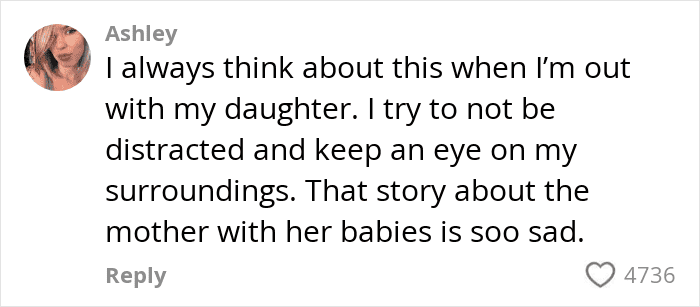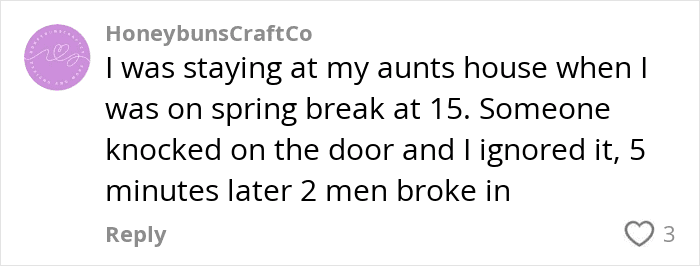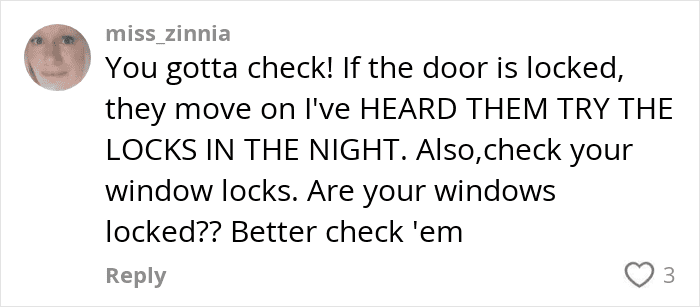We all have those people in our lives: well-wishers who pass on advice that sticks with us. It might be a parent, a teacher, or even a kind stranger who just wants to help. And thanks to the internet, that circle of support is even bigger now. Sometimes, total strangers look out for one another in the best ways possible.
Today, Pandas, we’re sharing some incredibly helpful safety tips from crime reporter Lori Fullbright. After years of covering real-life crime stories, she’s gathered wisdom that goes far beyond the typical “don’t talk to strangers.” These tips are practical, easy to remember, and shared with the intention of keeping more people safe and confident in their day-to-day lives. Keep reading to feel a little more prepared and a lot more cared for.
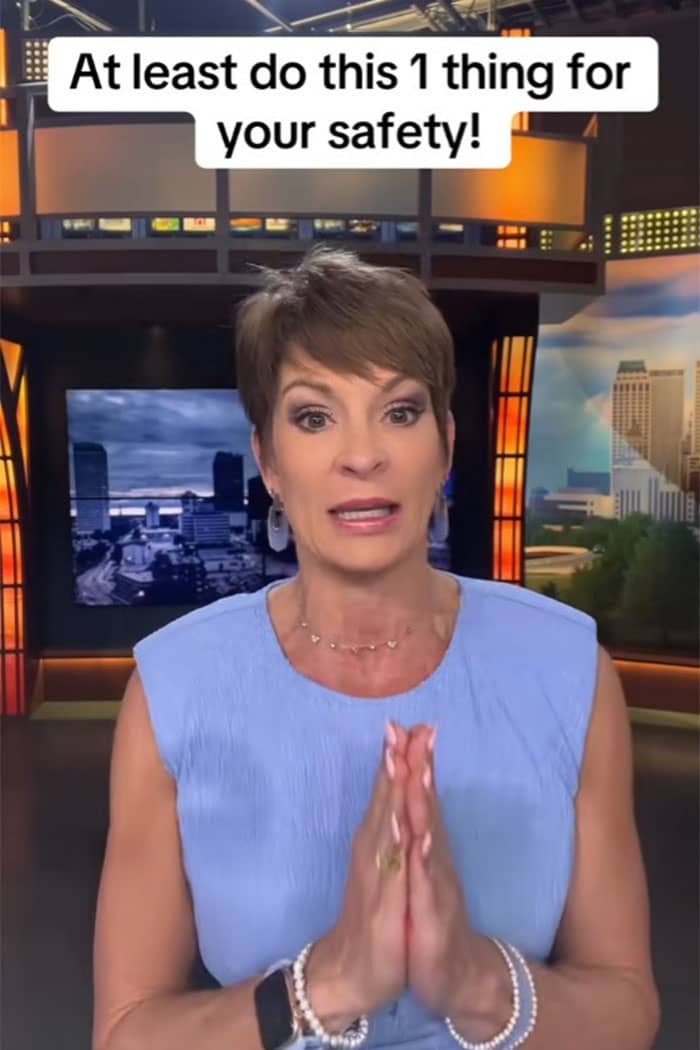
Image credits: lorifullbright
#1
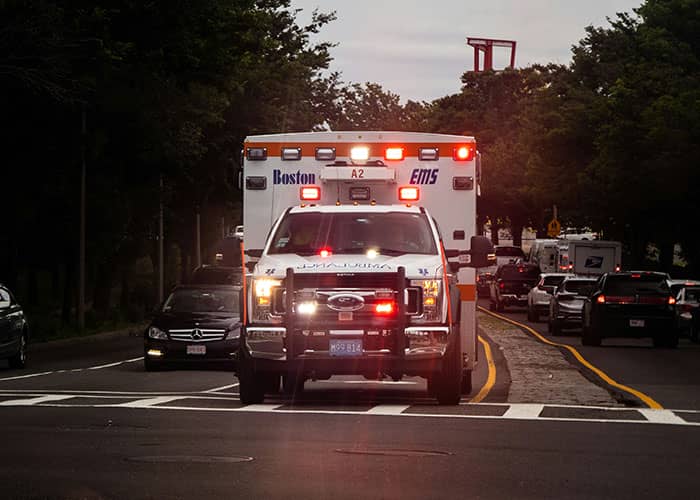
Here there are three things people need to keep in mind when they call 911.
First, I cannot tell you over the last 33 years of covering crime how many times I’ve had a victim say, as soon as the tragedy was over, the crime was over, the attack, the a*****t, was over, they called a loved one not 911.
I can’t tell you how many times. I had a woman and there was a guy trying to get into her apartment, she tapped on the glass door with her gun and he went away, good for her. And the first thing she did was call her boyfriend. People call their mom and dad, they call their loved ones first, and I get that need to talk to a familiar voice, but really what you need to do is call 911 first and then call your loved ones, so you can get police on the way, ambulance on the way, whatever it is needed, and maybe that guy who tapped on her window could have gotten caught before he actually got into some woman’s apartment.
The second thing to remember is the first person who answers the phone at 911, is not the person you go, ‘here’s what happened..’ Don’t tell your story, the first person who answers at 911 only wants to know one thing, police, fire, or EMS. So take a breath, take all that stress and adrenaline, and say I need police, or fire, or whatever it is, and then the next person that comes on the phone, that’s who you tell your story what happened, where you are, and all those things.
The third thing to keep in mind is that people get very frustrated because 911 is gonna ask you a million questions, and I have people who just go, ‘give me the cops’ and hang up. That is not the right thing to do. They do ask you a million questions but it’s because they need as much information to protect you, to protect the officers. They’re gonna ask you all kinds of questions and maybe they forget to say, ‘by the way, help is on the way,’ but I promise you, help is on the way, so just take a deep breath again, answer the questions as best you can because there is a reason they’re asking you for that.
I even have a person who called 911 about a burglar in their house, the cop pulled up, the burglar comes out but acts like the homeowner and says, ‘everything’s fine,’ and the officer left. So they might even ask you what are you wearing, do you have a weapon, where are you in the house. They’re gonna try to get as much information as they can to make sure they get the right person in custody and to make sure that everybody is safe.
#2
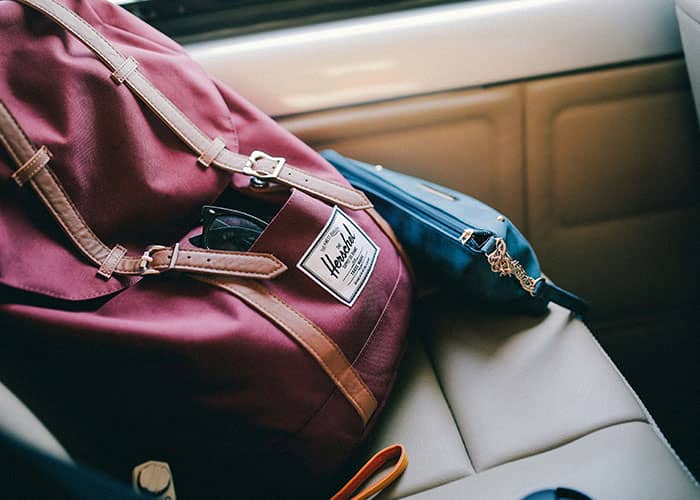
I would never leave my purse in my car, even for a second, no matter what, no matter where I am. Because I cover far too many break-ins that cost too much and takes too long to fix when your purse has been stolen.
#3
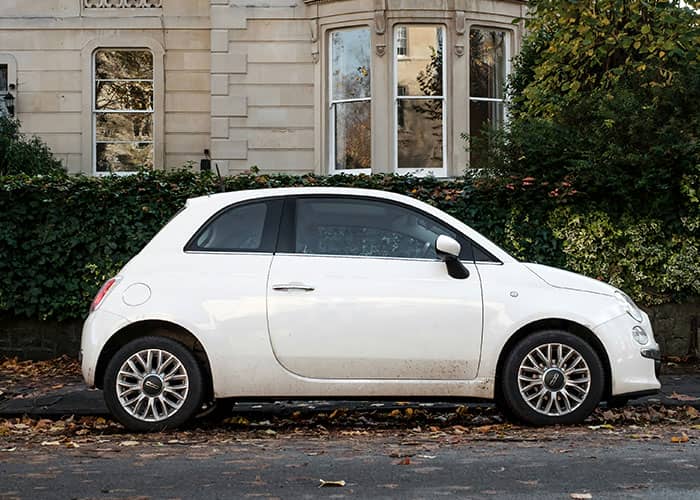
When you’re gone, they’re looking for anything that says that your routine is broken.
So if you normally have a car parked in the driveway, and now you don’t for a week, that’s a routine that’s broken. They think your house is empty. Your mail, of course, piling up in your mailbox, that’s a routine. If your windows, you know, your curtains are always up, and all of a sudden, for a week, they’re down, that’s something that breaks the routine. So they figure you’re gone for a week. So those are the types of things that they’re also looking for, is any routine that you break. They figure your house is gonna be empty, and it’s fair game.
So if you do leave, try to keep the routine the same, right? Have someone put trash on your curb on your trash day, have someone leave a car parked in your driveway, leave your curtains the way they normally are, and it’s best to have a friend, a loved one, a trusted person come by and check on your house physically every single day while you’re gone. Because that way, then they’ll notice right away if a door’s been kicked, a window’s been breached, or something has gone wrong. It seems simple, but there are some basic things we can all do.
Journalists are natural researchers. Depending on the beats they cover, be it politics, health, or crime—they end up picking up a ton of knowledge along the way. Not just from reports, but also from real-life field experiences. And after years in the business, they tend to build a mental library of practical, real-world insights.
To understand this better, we spoke to Hiren Mehta, a seasoned journalist with over 30 years of experience covering Defense, Health, Politics, and Civil issues. His long and varied career has taken him into government buildings, border regions, hospitals, and protest sites. He’s someone who has reported from the ground, often under pressure. That firsthand exposure has given him both instinct and insight that books can’t teach.
Hiren begins by saying, “Being on the field gives you a whole different kind of awareness. You start to read situations faster, whether it’s a crowd turning tense or a source going silent.” This kind of intuition builds slowly, he adds. “And once you have it, you never really switch it off.”
#4
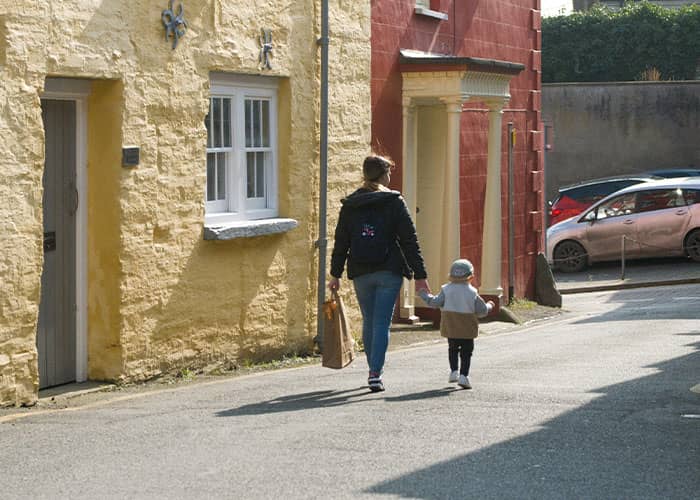
I get asked most at my speeches is how do criminals pick their victims and I see a lot of things online that say oh they want tall, they want short, they want blonde, they want someone with a ponytail, but that’s not my experience.
Now I have covered a few serial r*pists that have a type, but by large the ones that I interview or the ones that I cover are looking for an easy target and so they’re not looking for someone who is a hard target. They’re looking for someone who is distracted, looking in their phone, looking down, they are not paying attention, they look like they would be vulnerable and do exactly what they say, which is they want it to be quick and they want it to be quiet.
I interview a lot of criminals who say, ‘When I tell a victim to do something, I expect they’re gonna do exactly what I say,’ so they kind of expect us to be a lamb to slaughter. I tell people, you need to look like you’re a hard target, not an easy target, and that means not being distracted, looking around, paying attention, having your head up, looking people in the eyes, speaking when you see them.
I was at a trial once covering these armed robbers and it was a really interesting insight into how they picked their victim that day and the first guy they saw was mowing his yard, an older gentleman. And he had his wallet sticking out of his back pocket. So they parked the car, one guy gets out, puts the gun in his waistband under a shirt, he’s walking up to that guy to rob him and the guy turns off the mower and says, ‘hello, how can I help you?What’s up?’ And the guy decided, no, that’s not the guy, so he gets back in the car.
And then they drive by a high school and they see a high school girl coming out and she’s got a really nice designer purse and backpack so they decide, okay, she’s the one. And so he gets out again, has the gun in his waistband, and goes up to her. She looks him in the face, ‘how’s it going? What’s up?’ And he’s like, no, she’s not the one. And then they’re driving around and they see Michelle, and she’s got a toddler with her and an infant in the carrier, and she’s going into a clinic for free formula for her babies. I’m sure she looks like an easier target to them and they put the gun on her face and demanded her purse. The ladies in the clinic saw her do this, not like she was actively resisting, but I’m sure she thought, ‘I don’t have much, but I need it.’ But they yank that purse off of her and they shot and k**led her and then when the ladies in the clinic were trying to run out and help with the babies, they fired shots at them too, but nobody was hit. I had to listen to those guys testify in court and when they opened Michelle’s purse, she had less than a dollar in it, but it was an interesting insight into what they’re looking for.
They are looking for an easy target, they are looking for someone who’s walking around scared, not prepared, not with situational awareness. Here’s what I also tell people, you can do everything perfectly right, you can have great situation awareness, you can look like you are a person to be reckoned with, a person with command presence, a person with authority as you’re moving through your day, you can be a prepared mindset, you can have your plan for all these different events and practice your plans, you can do everything right and still encounter a criminal. That’s just the world we live in, including me, I mean, that could happen to me as well, and at that point it becomes all about survival.
#5
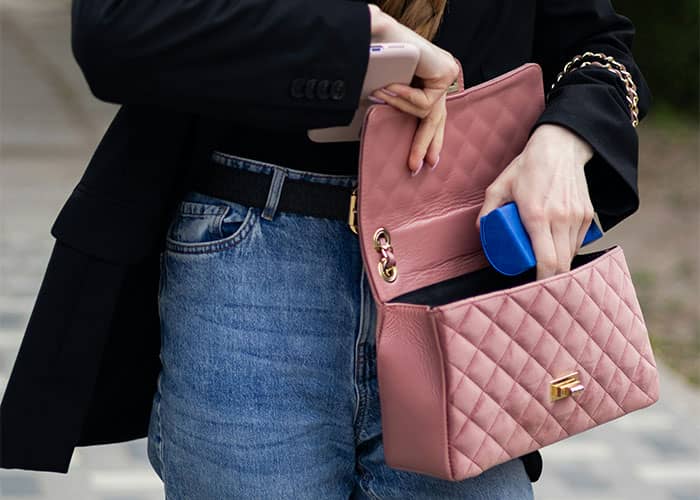
I would never get hurt or k**led protecting property. If somebody wants my property, they can have it. If they want my life, it’s a different thing, then I would fight back. But if somebody wants my purse, my car, I’m not gonna get hurt or k**led protecting property.
#6

I wanted to just give you a reminder about the dangers of accepting a ride from someone.
And it’s a shame, right? Because there are many good people out there who could give you a ride and everything would be great. But so many times over the years, I have covered a story where it turns out badly. And recently, we’ve had four in a row. So we had a teenager, and she ran away from a group home, and a guy offered her a ride, and she accepted. And he, instead of taking her where she asked, took her behind a mall and r*ped her.
And then we have a woman who had left a mental institution in Tulsa, very vulnerable, and she’s walking, and a guy offers her a ride. And initially, she’s like, no, thank you. And he’s like, look, I’m an Uber driver, but I’m off duty, so, you know, you can, I’ll take you home, I promise. And with that assurance, she did get into the car with him, but he did not take her home. He took her to some train tracks and he assaulted her. I also have a woman who was intoxicated, and she and her friends get separated when she leaves the bar. And, you know, you would hope in that moment, it would be a kind person who would see a vulnerable person and take care of them, get them help. But instead, a guy offers her a ride, and she eventually does accept that ride. And then he takes her someplace and sexually assaults her.
I have a woman who’s just gonna walk a mile, a mile to go see her husband, and a guy’s like, hey, hey, you know, no need to walk. I’m just gonna all run you down there. And when she gets in the car, he pulls a gun and threatens to k**l her. And demanding all kinds of things. And she fought. She fought so hard. They’re fighting over this gun. She breaks the window, the passenger window out. She continues to fight until she eventually just throws herself out of that car. And I mean, when you talk about fighting for your life, that’s exactly what she did.
So we’ve seen several cases of this just recently, but over the years, I can’t tell you how many stories I’ve covered where a person accepts a ride and something goes horribly wrong. Do I cover people who give you a ride and everything is fine? Of course I do. But I just want this to be a reminder about your safety. There are so many ways now to get a ride, and I know that they cost money, but there are just so many options out there. So you just have to wonder, when someone pulls up and offers you a ride, what is their motive? Why are they picking me? What could happen? What could go wrong in this situation? So it’s just another reminder to be safe out there.
“You learn things that you won’t understand by just reading about them,” Hiren says. “Like how body language can say more than spoken words or how silence from an official sometimes signals bigger news.” Fieldwork sharpens your senses in a way that academic learning simply can’t. It forces you to listen better, observe more, and react quicker.
“You start to develop a know-how of things,” he adds. “From how to safely navigate public spaces during civil unrest to knowing when someone is dodging your question.” It’s like building your own inner compass for safety and judgment. “You rely less on gut feelings and more on lived experience.”
“When you’ve been in the industry for long, you start thinking three steps ahead,” he says. “That’s part instinct, part training, and a lot of experience.” Whether it’s avoiding a sketchy route or preparing questions for a sensitive interview, it’s all about being proactive. “It makes you cautious, but never fearful,” he adds.
#7
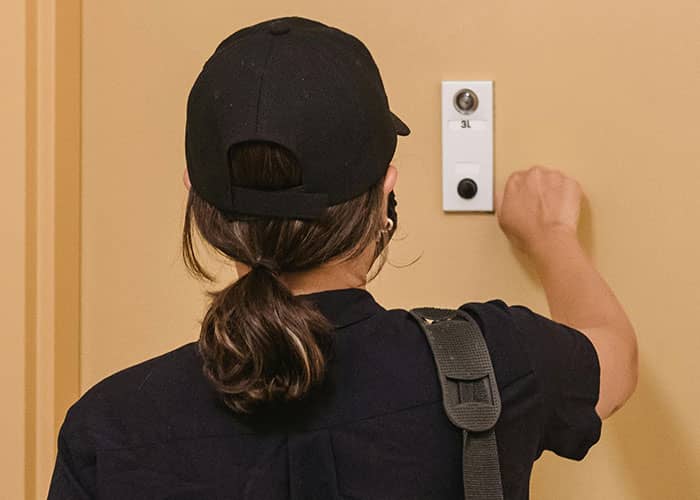
So you should not get quiet and pretend you’re not home whenever someone knocks on your door.
I have interviewed hundreds of criminals, burglars particularly, in my 30 one years as a crime reporter. And they vast majority of them tell me that they wanna hit a house that’s empty.
They wanna kick in your door when you’re gone, take all your stuff and leave. And it’s terrible if you come home and all your stuff is gone. People go, oh, it’s a property crime. It’s not. It’s very personal. But it’s way worse if you kick in that door and there you are inside, pretending you’re not there. Now you’re face to face with a criminal.
So the vast majority of these burglars tell me they like to hit Monday through Friday, 9 AM To 03:30 PM. Why? Because they think you’re gone. And that’s really what most of them want, is for you to be gone. They want an empty house, but they’re not sure you’re gone. So what do they do? They knock. They listen. No footsteps, no voices, no TV, no radio. So what do you think? The house is empty and boom, they kick it. It’s called a knocking a kick. And there’s a lot of knocking kicks, you guys, every single month in Green Country. So you need a plan for that.
Of course, if someone kicks in the door and you’re there. But let’s try to prevent that from happening altogether. So the next time somebody knocks, don’t get quiet, make noise. Go talk through the door. ‘Can I help you?’ ‘I’m not interested.’ ‘Move along.’ They now know someone’s inside. If you want, lie for safety and say, ‘honey, get out the shower.’ ‘Somebody’s at the door.’ ‘Honey, stop loading the shotgun and feed the pit bulls.’ I mean, whatever you wanna say to let them know someone’s in that house. Hopefully more than it makes it sound like there’s more than one person. Blast the TV, stomp around, bang your pots and pans together, but let them know somebody’s in that house.
Because the burglars that I interview say once they realize someone’s inside, the vast majority of them, again, will go find another house. They’ll go look for an empty house. So I see so many cases, you guys, where it doesn’t turn out well. Or someone hear someone knock and you think, oh, they’ll just go away if I get quiet and hide. Um. And bad things happen. And I see this a lot with kids. So I would definitely encourage you to teach your kids, if someone knocks, don’t get quiet. Pretend they’re not there. Make a ruckus. Because, again, the vast majority of burglars won’t come in if they know somebody’s home. Be safe out there.
#8

The one thing that everybody should do that will make them safer when they go about living their lives is know where your exits are for every place that you go to.
Especially those places you go to a lot. You go to church, you go to the same grocery store, you like the same movie theaters. Every time you go to a place, you need to know where my exits. It takes you just a few seconds.
I’m not saying you have to live in a crazy, paranoid world, but that’s a simple thing. So what if a fight breaks out? Do you know, how am I gonna get out of here quickly? If you hear shots being fired, do you know how am I gonna get out of here quickly? And a lot of times, if you go to a restaurant and something goes wrong, people all immediately head to that exit where they came in. But that is gonna create a bottleneck.
And every kitchen at every restaurant has an exit where they have to take out the trash to the dumpster. So maybe that would be your better option, depending on where you’re sitting and where the threat is between you. And an exit at church, at a movie theater, it takes a few seconds to walk in and say, okay, there is an exit, and there is an exit, and there is an exit.
So if something happens, if there’s a fire, if there’s gunfire, if there’s a fight that breaks out, and I need to get out of here quickly, where am I gonna go? At work, right? Everybody in this building always thinks of the exit that they come into and out of. But there’s an exit right by our newsroom that I promise you, if shots were fired, not one of them would think of that exit, even though I do talk about it all the time. So it’s just, if I was gonna encourage people to do. I think there’s a lot of things we should all do about safety and prevention. But if you were gonna do one thing, just one, to make yourself more aware of the things that could happen that we see happen to normal everyday innocent people who are just living their lives and minding their own business, if you would do that one thing, it would make you and your family safer. And again, you don’t have to be like a special forces kind of person.
Anybody can look into the place where they are and think, where’s my exit? And then, like I always say, have your plan, then move on with your life. Just enjoy your life. But at least do that much to protect yourself.
#9
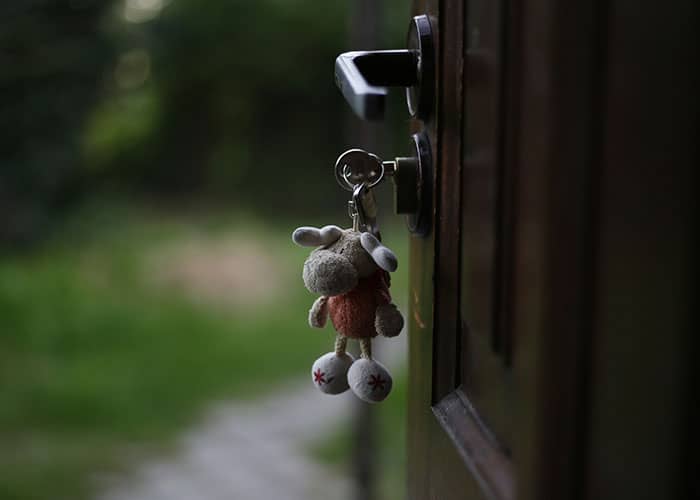
I know this sounds crazy, but the number one thing that you can do to protect your home is lock your doors.
We have had a string a break ins recently in the Tulsa area because people have gone to bed at night and not lock their doors.
What we’ve had is some burglars have slipped in those unlocked doors and they’d take a purse right off the dining room table, cause girls, you know, that’s where we set it for the night. And they’re just taking something and leaving, families asleep in the house, which is such a scary feeling.
One of the thing, people leave their car doors unlocked all the time. And that’s called car hopping, where they just hit a neighborhood and they try all the doors on car handles, and the ones that are unlocked, they just go in and steal whatever they can take. Literally whatever they can take. Even if it’s your insurance verification form.
But lots of people, as you know, leave lots of things in their cars overnight that they shouldn’t. they can also get your garage door opener, right, and then open your garage door and then come inside. Another thing that we see is people, they don’t just forget to lock their doors, but they leave a door open for a pet to come inside. That is also an open invitation for some of these burglars. They go around. We’ve seen it. They go through a neighborhood, and they’ll try 300 door knobs a night. And the ones that are open, they’ll go in and see what they can find quickly and get in and get out. That’s a very dangerous thing for them to do, but it’s also very scary.
We’ve had in some of these cases recently, kids no longer wanna be home, right? Because now they know someone came in the night when they were sleeping and took mom’s purse off the table. And they feel very unsafe and they don’t wanna be there. And it just changes your whole sense of security. Not to mention the things that you have stolen as well.
“We ask several questions, and because of that, we often have answers to things others might overlook,” Hiren explains. “Our job is to dig deeper and connect dots others might miss.” That constant questioning builds a mindset that helps in everyday problem-solving too. “It’s a habit that extends well beyond journalism.”
“If there’s something that can be helpful, especially if our stories can help someone stay safe or informed, we feel a sense of responsibility,” he says. “Journalism isn’t just about breaking news. It’s also about public service.” He believes even a small tip or alert in an article can make a difference in someone’s life.
#10

I would never sleep with my windows open, no matter what the weather I have. Too many stories that I can tell you about things that have gone badly because one night you chose to sleep with your windows open cause the weather is nice.
#11

Why it’s important that during family movie night everybody has their own blanket?
As a crime reporter of 33 years I can’t tell you how many affidavits I’ve read over the years where the child comes forward about an abuse that’s happened and it’s almost always somebody they know as you know by statistics and how many affidavits say it started during a family movie night and I know you wanna think it could never happen in your family but it does and it happens in good families, conscientious families, families who’ve talked to each other, talk to the kids about all these situations.
But I’m telling you when it happens in that moment kids just don’t know what to do and I see that over and over they pretend that they’re asleep they pretend to move away they pretend to ignore it but that is not gonna get it to stop and I think an easy rule is everybody has their own blanket.
Because maybe cousins are in town and we’re all having a movie night and all the kids are piled out there and they’re all sharing blankets and that is just a ripe opportunity for something to happen under that blanket and then sometimes that leads to more and more as we often see and it’s very hard for victims in that case to stop in front of the whole family and say, ‘you know he’s touching me under this blanket’ or ‘she’s doing something to me under this blanket,’ it just doesn’t happen in that moment as much as we told kids speak up, say no, tell a grown up, tell someone you trust, so many just say they don’t know what to do.
So I think you solve that problem and I think you do it in such a way that doesn’t have to make people go ‘what is her problem?’ If there are stepbrothers in town, there are uncles in town that we don’t normally see or even if it is people that we normally see it’s still a good idea because it just takes away that one opportunity and these predators are looking for any opportunity they can to make that first leap and I will tell you that it often starts with non sexual touching, they high five, they hug, they do this and they do that and that makes the path easier for when it turns to touching that is sexual.
I think it’s a really important conversation to have with kids without scaring them, without making them worried about the cousins coming to visit for the holidays or other people in their lives, but that they can and should say something to you as soon as it happens but it’s so easy to prevent this one thing from happening by everybody having their own blanket on family movie night.
#12
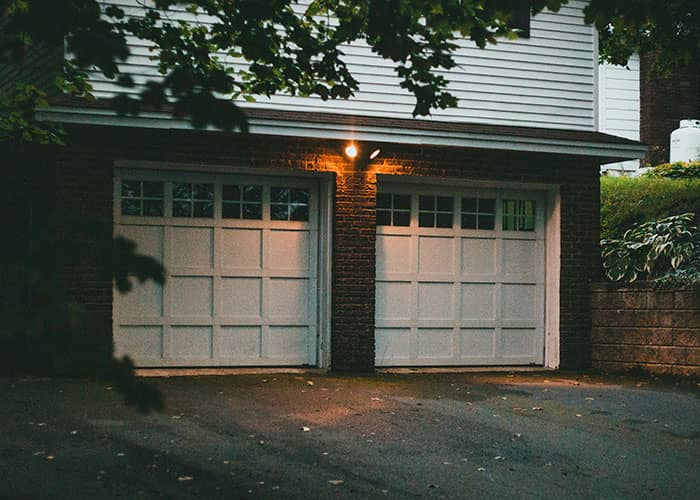
With spring coming up, we’re gonna see a lot of people working out in the yard. And I can’t tell you how many stories I’ve covered where you’re working out in the yard. The garage door is up, and, you know, you’re going to the side yard, you’re getting your flowers, you’re getting this and that, you’re walking back in and out of the garage, so you don’t wanna close the garage door. Someone goes in your garage, takes tools, someone walks in your garage, takes your purse, and then off they go. And it’s a pain to keep your garage door with you. But that’s a big opportunity that these people who are in neighborhoods looking for those kinds of opportunities.
In conclusion, Hiren shares, “Good reporting is a blend of observation, experience, and empathy.” The job shapes not just how you see the world, but how you move through it. And while not everyone needs to think like a journalist, picking up some of these habits can definitely help in staying sharp and aware. Just like these safety tips are both helpful and eye-opening, they’re definitely worth keeping in mind. You never know when a small piece of advice might make a big difference.



